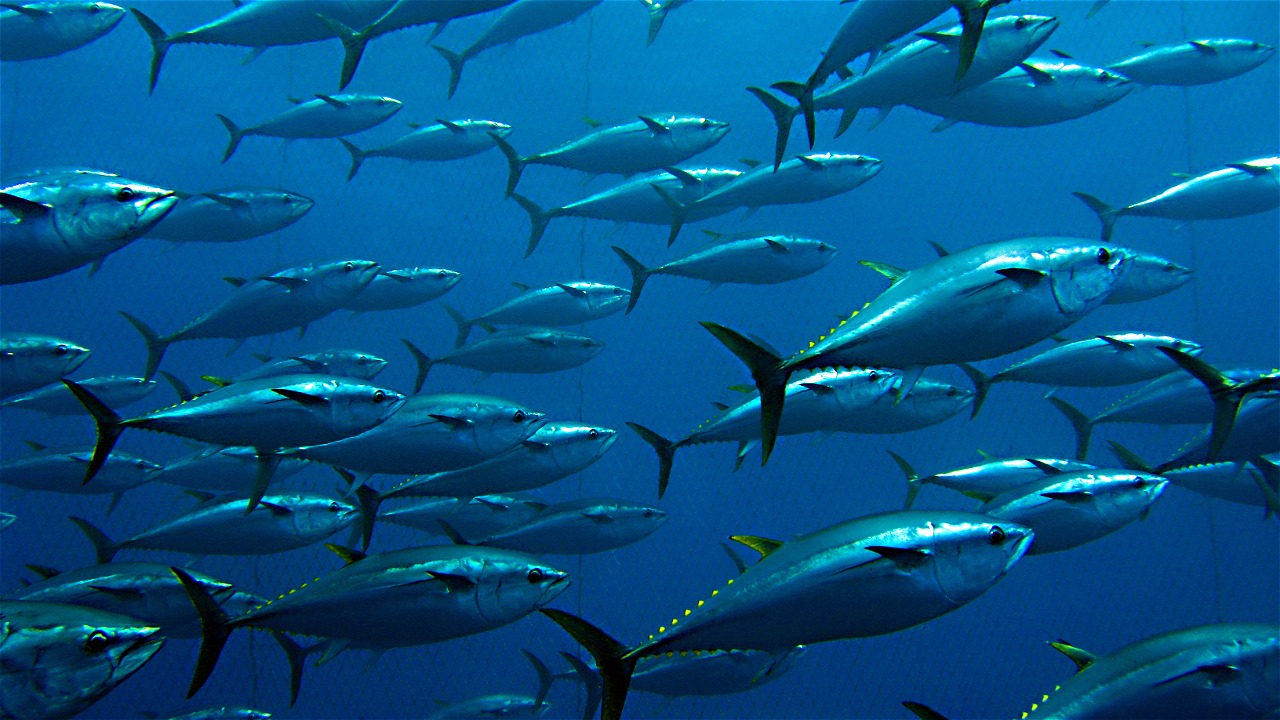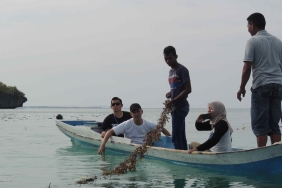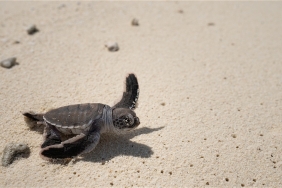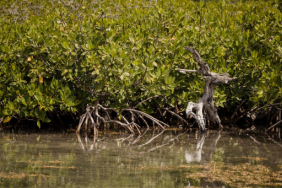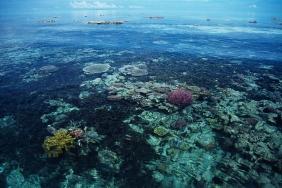AN INTIAL STEP TOWARD MSC CERTIFICATION FOR INDONESIAN TUNA AND REEF FISH PRODUCTS
By Nina Samidi
Jakarta (22/06)-As a follow up after the consultation on tuna and reef fish fisheries improvement last October, WWF-Indonesia in a collaboration with Ministry of Marine Affairs and Fisheries (KKP) organized a socialization meeting on the improvement of tuna and reef fish fisheries toward Marine Stewardship Council (MSC) Certification, on 21 June 2011 at Kartika Chandra Hotel, Jakarta. Numbers of documents namely Indonesian Reef Fish Action Plan (snapper and grouper), Indonesian Tuna Action Plan (yellowfin, big eye and skipjack tuna) and Tuna Fisheries Management Plan were socialized at the meeting.
Some relevant stakeholders from Ministry of Marine Affairs and Fisheries, , Indonesian Tuna Commission, some tuna industry actors (ANOVA, PT. Chen Woo Fishery, Indonesian Tuna Association/ASTUIN), GAPPINDO, MPN), WWF-Indonesia, SFP, and IMACS.
The consumers’ awareness toward sustainable \seafood has forced major retailers in USA and Europe to only buy MSC-certified products by 2012. It is not surprising that in the future, trading MSC-certified fish products that promote ecosystem-based fisheries management would be implemented in all countries.
Therefore, Indonesia, as the fourth biggest reef fish and tuna producer in the world, has been preparing and improving its fishery products in order to get certified, particularly the products that will be exported. In 2009, WWF-Indonesia with Foreign Marketing Directorate of Ministry of Marine Affairs and Fisheries has facilitated the pre-assessment for reef fish and tuna fisheries industries. The result showed that there were some good practices been implemented in Indonesian fisheries management system which areneeded be maintained. Moreover it has also identified research/data collection, fisheries policy and its implementation which are needed to be strengthened as an attempt to achieve MSC ecolabel.
“If we still want to sell our fishery products to global market so we need to make significant change since we don’t have any other options,” Saut Hutagalung, Director of Foreign Marketing, MMAF said. “In this context, since 2008 we have been collaborating with WWF to facilitate fishing industries to take part in MSC certification,” he added.
However adherence to these principles requires a fundamental shift in Indonesian practices. Fisheries management must focus on the sustainability of fish resources instead of increasing production number which may risk the sustainability fish stocks.
It should be realised that the process to achieve MSC certification takes time and hard work as well as active participation from all stakeholders including the government. Dr. Purwito Martosubroto, Chairman of Indonesian Tuna Commission emphasized, “The sustainability of fish resources is not only the responsibility of the industry players but also the government. In the implementation of fishery management there are some measurements and regulations that have to be employed in each provinces and districts. Government is responsible to set up those measurements and regulations. In a conclusion, the government plays a significant role toward fisheries management.
Furthermore, he also highlighted the importance of composing a clear structural work plan. Roles and responsibilities of each department and organisation are clearly determined so there won’t be a task overlap.
The meeting also discussed the proposed organigram of Indonesian tuna fisheries management. The roles and responsibiilties of each organisation and stakeholder undertake some tasks and the next steps were discuseed in this session. Richard Banks as representative of WWF for fisheries development activites underlined that every stakeholder should focus on framework and do their best.
Meanwhile Imam Musthofa, WWF-Indonesia Fisheries Program Leader encouraged the participants to focus discussing the framework that has been developed. Some considerations regarding the fisheries development program had been already discussed in the previous meeting. The participants should focus on how to follow up the framework, bring up the progress and identify the next actions.
Blane Olson, from Anova Seafood Group, importer of Indonesian fisheries products who supports MSC certification believed that Indonesian product would be able to get certified. “The wide range of stakeholders is surely needed to be actively involved in this program. Great supports and strong commitments from all stakeholders, the industries and government, are the key factors to achieve MSC certification. If government makes some changes by implementing rules, developing a program with specific timeframe and working closely with NGOs and other associations, I believe that Indonesian fishery products will easily get certified” he explained.
Agus A. Budhiman, Director of Fishery Resources, also expressed the same concern. He said that the government support is very crucial. “We are aware that this step is very important. Industries will gradually understand that oceans cannot be over exploited. Directorate of Fishery Resources had also implemented some responsible measurements on fisheries management that would ensure the sustainability of seafood products,” he said.

